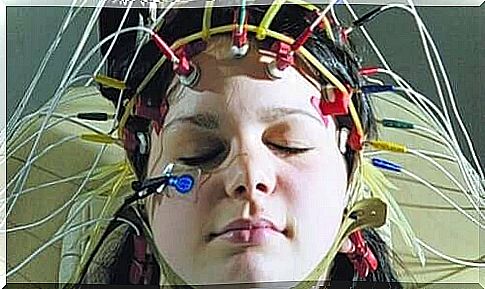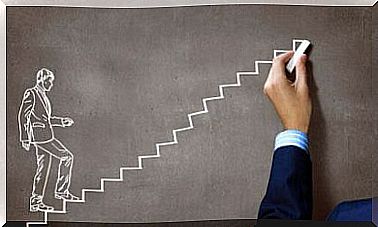Learning In Sleep: Myths And Truths

The idea that it is possible to learn in sleep, or hypnopedia, has caught on. There are many advertisements that ensure that it is enough to listen to a recorded lesson while you sleep to acquire a series of knowledge. But is it really so? What does science say about it?
The most interesting aspect of this theory is the reduced effort in proportion to the expected results. The idea is to learn without making any effort. And, in theory, this learning is of quality: the result is learning something new without realizing it, moreover without gaps or errors. All this is perceived as the panacea for those who are not very inclined to study. We fall asleep ignorant and wake up caught.
This idea certainly attracts attention from an advertising point of view. Yet, in practice, things could be very different. Advertisers must have started from a scientific basis, but at some point they have gone beyond all real limits.
Learning in your sleep
First of all, we must say that learning is a process through which a change of perspective or behavior occurs in a person, based on the experiences acquired. Such experiences can be of a physical or mental nature. The result is that after acquiring new knowledge, the person is no longer the same.

On the other hand, learning is not just what we unconsciously remember. Memory is only part of this process. A new knowledge not only generates memories, but also stimulates a change of attitude and points of view on reality.
Now, sleep is characterized by two phases: paradoxical and non-paradoxical sleep. The first is also called rapid eye movement, or REM. Science has discovered that there is a relationship between this phase of sleep and the consolidation of memory. However, this mechanism is not entirely clear.
Despite this, it has been observed that the memory that is consolidated in this phase is long-term, but also that if the person is deprived of this time period, not only amnesia comes into play, but also a condition of stress. If a person receives external stimuli at this stage of sleep, the result will be poor quality rest. So is it possible to learn in sleep?
A suggestive experiment
To understand whether or not it is possible to learn in sleep, the Weizmann Institute conducted an experiment on conditioned learning in 2014, which was published in Nature Neuroscience .
The sleeping volunteers were made to listen to a series of sounds of different tones while a perfume was diffused. This procedure was repeated several times, only to eliminate the olfactory stimulus in the last phase.

The next day, some of the participants were consciously exposed to the sound stimulus. The result was that almost everyone also perceived the scent of the previous night, although the latter was not present. To put it in one word, they had “learned” to associate those stimuli with each other while they slept.
This leads to the conclusion that it is indeed possible to stimulate some type of learning during sleep, although this has very specific limitations. The first is that a completely mechanical learning is generated, without rational re-elaboration. None of the participants in the experiment remembered what happened the previous night. Likewise, over time they stopped associating sound and smell with each other. Consequently, it was an elementary and ephemeral learning.
Incomplete results
What surprised the scientists at the Weizmann Institute was that learning, however limited, was acquired at stages other than REM. At first glance, the brain may seem more receptive to external stimuli during REM sleep, but the experiment proved the opposite.

What is certain is that we know very little about sleep, of which we ignore many aspects. Conversely, we know with certainty that it is an indispensable physiological mechanism for the human being. While asleep, the brain carries out a sort of purification, eliminating data that is not useful to it and consolidating the relevant ones. At the same time, when he does not rest properly, negative health consequences arise.
To date, there is no conclusive evidence on the possibility of learning in sleep, at least for the topics that require reasoning. Nor is there certainty about the duration and actual success of other forms of learning that derive from sleep. Consequently, at least for now, we will probably continue to learn the traditional way.









